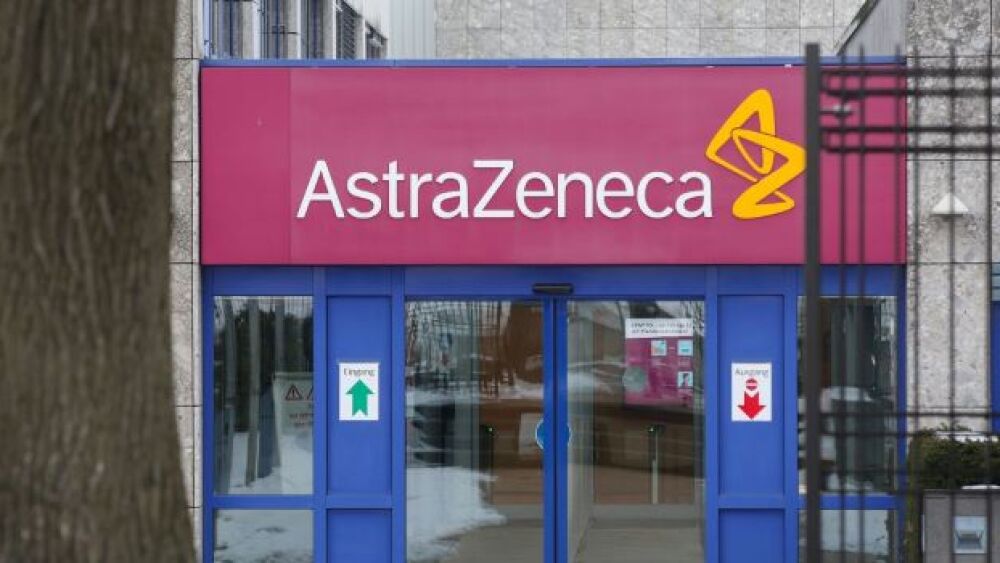AstraZeneca reported positive data from both the Phase III ADAURA trial studying Tagrisso (osimertinib) and the Phase III AEGEAN studying Imfinzi (durvalumab) in NSCLC patients.
Pictured: AstraZeneca building/Bodo Marks/picture alliance/Getty Images
Thursday, AstraZeneca reported data from the Phase III ADAURA trial showing its Tagrisso (osimertinib) boosts overall survival (OS) as an adjuvant treatment for early non-small cell lung cancer (NSCLC) after curative resection.
Concurrently, a planned interim analysis of the Phase III AEGEAN study showed AstraZeneca’s Imfinzi (durvalumab), when combined with neoadjuvant therapy before surgery and as an adjuvant monotherapy after surgery, improved event-free survival (EFS) in early NSCLC.
ADAURA was a randomized, double-blinded and placebo-controlled study that enrolled 682 patients with stage IB, II and IIIA NSCLC harboring mutations in the EGFR gene. Participants were given Tagrisso 80-mg tablets once a day or placebo for three years or until NSCLC recurrence.
Patients in the Tagrisso arm saw a statistically significant and clinically meaningful improvement in OS, which is a key secondary efficacy metric of ADAURA.
The study’s primary endpoint was disease-free survival, which it met in May 2020. In stage II and IIIA patients treated with Tagrisso, the risk of recurrence or death was reduced by 83%. In the overall cohort, with NSCLC Stages ranging from IB to IIIA, Tagrisso cut the risk of recurrence or death by 79%.
ADAURA’s data readout was initially scheduled for 2022, but due to “overwhelming efficacy,” an Independent Data Monitoring Committee recommended in April 2020 that the study be unblinded two years earlier.
In September 2022, AstraZeneca posted updated data from ADAURA showing Tagrisso reached a median DFS of 5.5 years.
Imfinzi Aces Phase III in NSCLC
Also on Thursday, AstraZeneca reported that in the Phase III AEGEAN study, NSCLC patients treated with Imfinzi demonstrated statistically significant and clinically meaningful improvements in EFS, one of the study’s two primary endpoints.
In June 2022, the company first announced that Imfinzi had met AEGEAN’s first primary endpoint of pathologic complete response (pCR). The PD-L1 blocker also significantly improved major pathologic response.
AEGEAN is a randomized, double-blinded and placebo-controlled Phase III trial that enrolled 802 NSCLC patients who had early-stage disease. Imfinzi was given with chemotherapy every three weeks for four cycles before surgery, and then as a monotherapy every four weeks for up to 12 weeks after the procedure.
AEGEAN will continue to collect data for its secondary endpoints of DFS and OS.
These findings suggest that early Imfinzi intervention could provide meaningful benefit in patients with resectable NSCLC, for whom new treatment options to improve long-term survival outcomes are “urgently needed,” John Heymach, M.D., Ph.D., chair, Thoracic/Head and Neck Medical Oncology, The University of Texas MD Anderson Cancer Center, said in a statement.
“The AEGEAN results provide compelling evidence that this novel durvalumab regimen can drive improved outcomes in this curative-intent setting,” he added.






